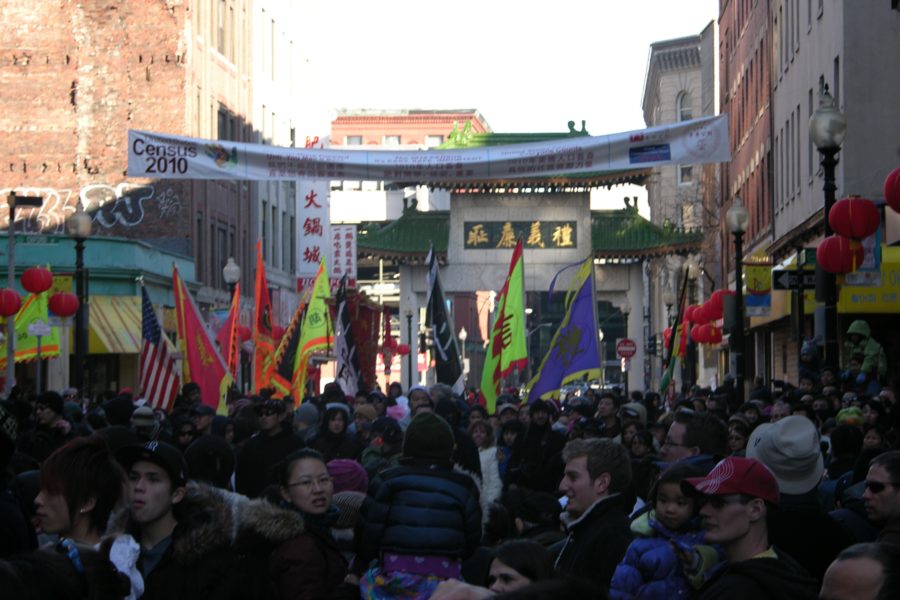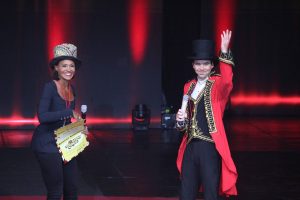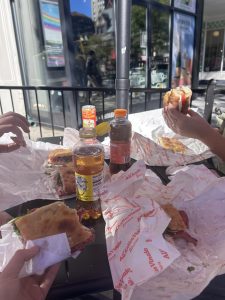China Town rings in New Year
February 24, 2010
Hundreds flocked to the streets of Boston’s China Town last weekend to witness the China Town Lion Dance Parade, which capped the second of three weekend celebrations in honor of this year’s Chinese New Year, the year of the tiger.
The Lion Dance is similar to and commonly confused with the Dragon Dance, in which more than three people make up the team inside the dragon costume –the difference between the lions and dragons is a lack of horns – and the Lion Dance is made up of one or two people inside the lion costume. The lion team danced to music played by a drum, gong, and cymbal crew that followed the lion all over the streets of China Town, together with flag holders. The drummers played constantly, with slight variations to their beat, and the lion would then dance along, with the dancer inside controlling the lion’s head jutting it up and to left with a swift motion, then up and to the right, then dipping low, side to side. The drum and cymbals continued with a persistent pounding as the lion danced down the street.
Shop owners, standing outside their stores, leave offerings of lettuce and/or oranges for the lion, or as it is called, choy cheng, or “Eating of the Green.”Of course, in America, “the green” has come to symbolize money and a type of payment to the lion team. In most Lion Dance celebrations a small red envelope with some actual money is attached to the choy cheng. On Sunday, these were handed out, not attached to the offering. With good reason too – the offering of green is picked up by the lion head with its mouth, shredded and then tossed into the air to the left and right, spreading to the good luck all around.
James Chin, 38, of The Gung Ho Club Freemason Lion Dance Team, said that the choy cheng handed out by the shop owners is not only to bring good luck to the business, but “to ward off evil spirits and bring prosperity.” The Gung Ho Club is just one of many Lion Dance Teams that toured the streets Sunday. “Almost every martial arts school in the city has its own Lion Dance team. The lion’s movements mimic martial arts movements.”
Multiple teams of drummers, flag men, and costumed dancers continued to parade through the streets, performing the lion dance outside of what seemed like every single Chinese business in the area. Crowds followed the dance teams, through the tight China Town Streets, while huge bundles of fireworks were strung from fire escapes and thrown at the feet of the dancing lions, sounding intermittent booms that echoed for blocks.
The experienced spectators walked the streets wearing goggles to protect their eyes from hot pieces of fireworks flying through the air, while some members of the Lion teams wore respirators. The thousands of fireworks left plumes of smoke, the scent of gunpowder, and a prodigious mess. As the lions danced, children played in the dusty piles of spent fireworks casings that littered every street. Shredded lettuce and smashed oranges also covered the streets.
While the attitude in the streets was one of celebration, most business owners and street vendors kept their stores open, leaving the cash register only when the lions arrived to bestow good luck on their front steps. The event ran from 10 a.m. to about 5 p.m., leaving even the most physically fit Lion Dancers tired. By 4:30, the street sweeper had arrived to begin the serious job of cleaning up the mess.







